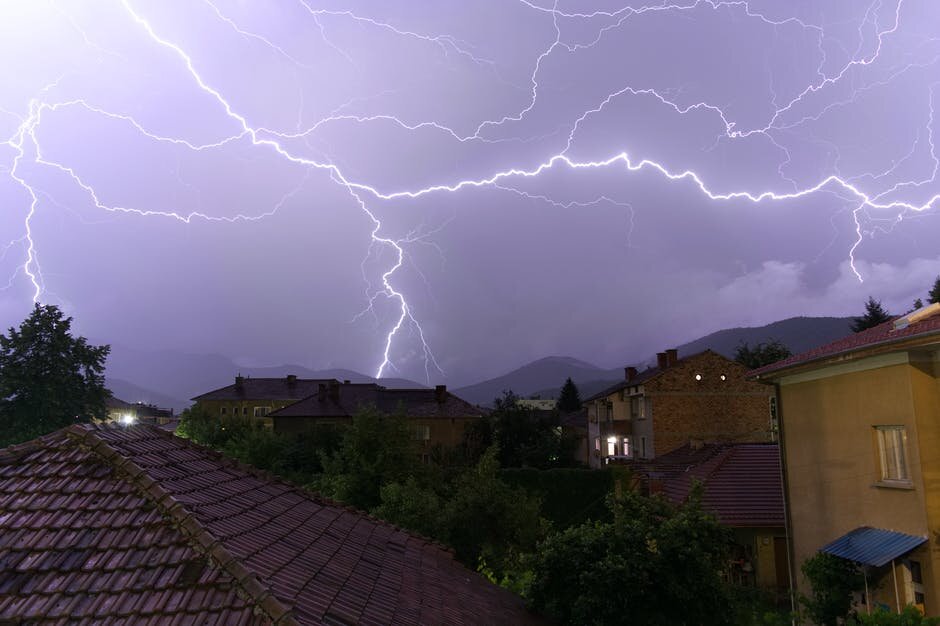Lightning strikes often here in Florida; Tampa is the lightning capital of the world after all! But what happens when lightning strikes your home and does damage? Will your homeowner’s insurance cover it?
Our public adjusters discuss when your homeowner’s insurance will (and won’t) cover lightning damage, and what you can do to keep your home protected.
How Homeowner’s Insurance Covers Lightning Damage
Lightning strikes can wreak havoc on your home. Not only can they cause fires, but they can ruin appliances, electronics, and the wiring in your home, and injure you and your family.
Lightning strikes, as well as fires started due to lightning, are covered perils in most homeowners’ insurance policies.
Your standard homeowner’s insurance policy should cover:
Personal property: This can include appliances, furnishings, electronics, and other possessions if they are damaged or destroyed by a lightning strike. Usually, it covers personal possessions at 50-70% of the amount of the insurance that you have on the structure of your home.
Additional living expenses: This covers costs if you need to stay at a hotel while your home is being repaired or rebuilt after a fire caused by lightning. This usually equates to 20% of your home’s value.
Other structure coverage: This pays for damage to your garage or shed, and generally, is 20% of your home coverage’s limit value.
How Your Insurance Company Treats Lightning Damage
For insurance purposes, lightning is defined as: “naturally generated electricity that comes from the atmosphere.
It occurs usually in three ways:
Lightning Strike
A “lightning strike” is when a bolt of lightning from the atmosphere enters and passes through your home on its way to the ground.
This kind of lightning usually causes the most damage including charring and fires. This kind of lightning is easy to claim as the damage is clearly evident. Even so, it is important to take photos and take note of the time of the lightning strike to submit to your insurer.
Near Miss
A lightning strike is considered a near miss when it occurs in an area near your home but doesn’t hit it directly.
In this case, the damage is usually less, and it can be more difficult to make a claim. Most homeowner’s insurance policies exclude artificially generated currents, such as sparks from a utility line, which often create damage like a near-miss lightning strike.
Ground Surge
When a lightning strike causes a surge in electricity throughout an area, this is called a ground surge. These are the most common lightning-related claims and can be difficult to prove, so fewer claims are paid out for this kind of damage.
What is an Insurance Loss Affidavit?
When placing a claim for a near-miss lightning strike, it can be difficult to prove that lightning was the cause of damage to your home’s electronics or wiring. Then, a lightning affidavit may be necessary to prove that lightning was the source of the damage.
Usually, a lightning loss affidavit is completed by a licensed electrician and confirms the damage under oath.
Filing a Lightning Damage Claim
Your homeowner’s insurance policy will have specific requirements regarding reporting a loss and many have a time limit of 30-60 days. Don’t delay! We’ll want to notify your insurance company as soon as possible after a damaging lightning strike. Lean on the help of an expert so you don’t damage your own claim.
After you file your claim, your insurer will send an adjuster to inspect the damage to your home and determine if it is covered. They will then offer a settlement for repairs. While you can accept the check right away if you are offered a settlement on the spot, the first offer that your insurer gives you may not be enough to cover the repairs.
Instead of reopening a claim to try to get more money, hire a public adjuster from Liberty Adjusters to work with your insurer on your behalf and get the settlement that you deserve the first time. Submit your lightning claim today!
Protect Your Home from Lightning
A little preparation can go a long way to shielding your home from lightning-related damages including:
Working smoke detectors, fire extinguishers, and flashlights
Plugging your appliances and electronics into surge protectors
Installing a whole-home surge protection system
Remaining indoors if you hear thunder, and avoiding contact with standing water
Being aware that lightning usually strikes more frequently during late summer afternoons and evenings
When Lightning Strikes, Lean on Liberty Adjusters
If your home has been damaged due to a lightning strike, call Liberty Adjusters to place a claim on your behalf. We will ensure that you get justice for your claim so you can repair the damage and get back to your life.
Submit a claim online or call our public adjusters at Liberty Adjusters today to get started; 813-922-5129!



